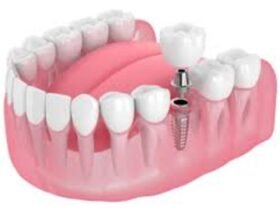Key Takeaways:
- Well pumps are critical for delivering water from underground sources to residential properties, ensuring access to essential water supply around the clock.
- Various types of well pumps cater to different well depths and operational needs, and this choice significantly impacts efficiency and maintenance challenges.
- Understanding the mechanics of well pumps is pivotal to achieving seamless performance and extending the lifespan of the equipment.
- Regular maintenance and timely professional repair services are crucial for preventing unexpected system failures and long-term functionality.
- Utilizing well water systems provides substantial financial benefits and enhances environmental sustainability over-reliance on public water systems.
Introduction
Well pumps are the backbone for households that rely on private wells for their water needs, providing an unbroken chain from underground aquifers to everyday activities within the home. These mechanical powerhouses are essential in locations where public water infrastructure might not extend, or families strive for independence from municipal resources. Well pumps guarantee access to water for various daily needs, with any disruption potentially causing significant inconvenience or a complete halt to domestic activities. Hence, understanding their operation, upkeep, and significance becomes crucial for homeowners with a well-based water system.
Types of Well Pumps
Choosing the appropriate well pump ensures the water system’s overall performance and durability. Two primary types of well pumps are often considered, each fitting distinct scenarios based on well depth and geographical challenges. This choice is crucial for optimizing water retrieval and flow from a well. Should a malfunction occur, having access to emergency well pump repair ensures minimal downtime and restores functionality promptly.
Submersible Pumps
Submersible pumps are a popular choice for deeper wells. They are submerged beneath the water, which imparts several benefits. Primarily, they reduce energy by pushing water to the surface rather than lifting it, thereby requiring less effort overall. This setup minimizes wear on the pump, leading to a longer operational lifespan. Additionally, submerging helps to cool the motor continuously, protecting it from overheating. Submersible pumps are also known for their efficiency and ability to maintain consistent water pressure, making them ideal for household use.
Jet Pumps
For shallower wells, jet pumps remain a practical option. Positioned above ground, jet pumps create a vacuum that draws water to the surface. They are versatile and can be adapted for shallow and deep-well operations depending on the pump configuration. This adaptability makes them a popular choice in various settings, including newly developed areas like Raleigh, where infrastructure development continually adjusts and where emergency well pump repair in Raleigh Can be critical to maintain functionality.
Operations of Well Pumps
The operation of well pumps involves impressive engineering that seamlessly integrates mechanical and hydraulic principles. These pumps utilize centrifugal force, where rotating impellers create pressure to move water through the system. This water is then directed into a pressure tank, which maintains adequate pressure to distribute water throughout the residential plumbing. This mechanism ensures that every faucet commands a steady stream and every appliance has the pressure to operate effectively. Understanding these principles helps appreciate their efficiency and is essential for proper maintenance and troubleshooting should issues arise.
Common Issues and Maintenance
Despite their robust engineering, well pumps can experience a variety of operational hiccups over time. Common issues include airlocks, diminished water pressure, and electrical faults interrupting water flow and service. Regular maintenance practices should be employed to mitigate these issues and enhance longevity. This includes periodic checks of electrical connections, pressure switch settings, and ensuring that impellers are debris-free. An annual professional inspection is also recommended to pinpoint potential problems before they escalate. Preventive actions such as these are crucial to avoid costly repairs or replacements.
Importance of Professional Services
While some simple, routine maintenance can be handled in-house, professional intervention is often necessary for more significant issues. Technicians have specialized knowledge and tools, ensuring accurate diagnoses and efficient solutions. Attempting repairs without the appropriate expertise can exacerbate topics, leading to escalated downtimes and further damage. Emphasizing professional services underscores the importance of trained personnel in preventive and corrective maintenance for well pumps, thus ensuring their optimal operation and extending their lifetime.
Benefits of Well Water Systems
Opting for a well water system presents economical and environmentally friendly benefits. A significant advantage is the reduction in water bills, as homeowners tap into their private water reserves without relying on municipal services. Additionally, well water often contains beneficial minerals naturally filtered through rock and soil, avoiding some chemical treatments used in municipally supplied water. These systems also align with sustainable practices, reducing the household’s carbon footprint and reliance on overextended public water supplies and promoting ecological stability.
Conclusion
Well pumps hold an undeniable role in ensuring reliable access to water for households with independent water systems. Grasping these pumps’ types, functions, and essential maintenance empowers homeowners to sustain an efficient and reliable water flow. With the myriad benefits well water systems offer, such as cost savings and environmental impact, they present a compelling alternative to public water systems. Investment in comprehensive understanding and proficient care, including professional repair services, ensures these systems operate at their best, delivering convenience and sustainability for years.
For More VIsit Walkermagazine















Leave a Reply